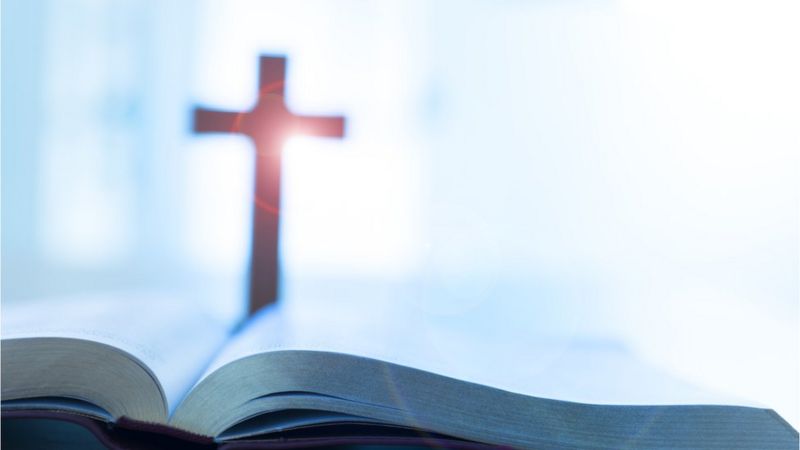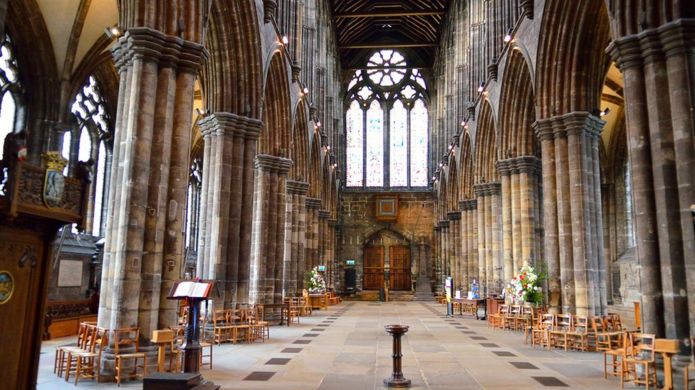 GETTY IMAGESThe Humanist Society has raised concerns about the prominence given to religion in Scotland.
GETTY IMAGESThe Humanist Society has raised concerns about the prominence given to religion in Scotland.
The number of Scots who say they are not religious has risen to almost three quarters, according to new research.
Just under a quarter (23.6%) said they were religious, while 72.4% said they were not, figures released by Humanist Society Scotland showed.
This was up from a similar poll in 2011 when 56% said they were not religious while 35% said they were.
The Humanist Society said the findings raised concerns about official statistics on religion in Scotland.
It suggested that the way in which census data and other studies of religion were being carried out gave higher figures of religiosity due to the way the question was framed.
Special rights
Almost six in ten (58%) said they didnt belong to a religion while just over four in ten (41%) said they did.
Gordon MacRae, chief executive of the Humanist Society Scotland, said: "These new findings raise concerns about the official statistics on the adherence to religion in Scotland.
"We know that many people identify with a particular religious community, usually due to family ties, but are not themselves practising that religion.
"These latest findings would suggest there could be as much as a 15% difference between official statistics and the reality of religions place in the Scottish public daily lives.
"This raises major questions about key policy decisions made by government regarding special rights given to religious bodies under law. For example, the right of Scotlands churches to hold the balance of power on local education committees.
"We need a new consensus in Scottish politics that respects and protects individuals right to freedom of religion and belief and separating this from policy making. Scotlands democracy needs to get to a place where we stop blurring the lines of church and state."
 GETTY IMAGESAttendance at Christian church services has fallen by more than half over 30 years.
GETTY IMAGESAttendance at Christian church services has fallen by more than half over 30 years.
The Survation poll of 1,016 Scottish adults was carried out between September 8 and 12 this year for Humanist Society Scotland.
Of those questioned, 4% preferred not to say whether or not they were religious.
The Progressive/YouGov poll of 2,007 Scottish adults was carried out in between January 10 and 14, 2011.
It found that 56% said they were not religious while 35% said they were and 8% said they did not know while 1% did not respond.
Earlier this year a survey of Scottish Christians found that the number of people who regularly attend church services had fallen by half over 30 years.
Food banks
Rev Norman Smith, convener of the Church of Scotlands mission and discipleship council, said: "The Church of Scotland is well aware that formal church membership has declined, yet as our own research, detailed in Steve Aisthorpes book The Invisible Church shows, the role of spirituality in peoples lives remains important.
"As a Church we are not driven by numbers, although we are committed to sharing our faith through our words and our deeds.
"It is no accident that people of faith across the country are over-represented in volunteer activities from supporting youth groups and operating dementia cafes to running food banks.
"We are also exploring new, fresh ways to express our faith and planting new churches, such as Dunfermline East, St Columbas Inverness, and through our pioneer ministries.
"The primary task of the church has not changed throughout the ages but the way we tackle that task continues to evolve. In the midst of decline you can find growth and in the midst of growth you can find decline. That is how it has always been."
A spokesman for the Catholic Church said: "The Humanist Society Scotland response to the latest poll is confused, yet not surprising.
"The question "are you religious" does not lend itself to a binary Yes/No answer since religiosity tends to exist on a sliding scale rather than at either end of a stark spectrum.
"That 72% of Scots describe themselves as not "religious" should not be read as implying, they have no religion










